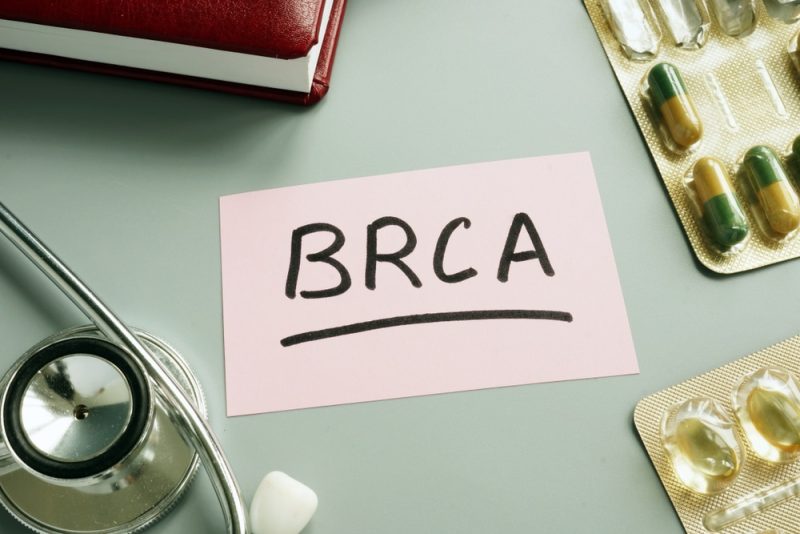PUBLISHED: 20th September 2021

Results from a Community Needs Assessment
by Josephine K. Boumis, M.A., and Marleah Dean, Ph.D.
You may remember seeing a study posted in FORCE’s email updates earlier this year titled “Information and Support Needs of Previvors.” We would like to share a summary of our results with you! Thank you to everyone who took the time to participate in our survey. Whether or not you took our survey, we hope that these findings are helpful.
What was this study about?
We wanted to identify and understand the information and support that our community’s previvors desire so that we can then provide this insight to healthcare providers, counselors and online resources.
BRCA1/2 previvors face many challenges and difficult management decisions, which can lead to feelings of distress. Having too much or not enough information or information that is confusing about their journey may also contribute to distress, causing uncertainty. While researchers have found that living in a constant state of intense uncertainty can be connected to worse health conditions, it may be possible to do something about it. Fulfilling previvors’ needs by providing them with the information they want can help to lower their distress.
Unfortunately, few efforts have previously been made to understand what information and support are most important to previvors. Therefore, we asked members in the BRCA community about their own experiences with finding and receiving information.
What did we do?
From January to March 2021, we recruited members of the larger BRCA previvor community, including members of FORCE. We asked them to use an online survey to tell us their needs. A total of 102 individuals completed the survey.
We asked BRCA1/2 previvors to recall what information they wanted at different stages throughout the genetic testing process: what was helpful, what was challenging about finding the information, and what was the source of their information?
What we found:
What information did previvors want before genetic testing? Before genetic testing, the majority of previvors (37.25%) wanted information about cancer risks for specific gene mutations. This information can sometimes be difficult to locate, and accessing the information can also be difficult. For example, some scientific journals are not accessible to the general public. Additionally, some previvors (25.49%) wanted information concerning insurance coverage of their genetic testing. Insurance coverage can impact previvors’ abilities to afford testing, so knowing the cost before testing is important.

What information did previvors want after receiving their test results? After receiving genetic test results, the largest group of previvors (31.16%) wanted action plans or detailed next steps to move forward. They also wanted to hear personal stories from other previvors (23.19%) and to receive emotional support from the previvor community (22.46%). Many previvors also reported needing a list of healthcare providers in their area (18.12%).

What information was the most helpful while trying to make risk-management decisions? While trying to make risk-management decisions,previvors said that the most helpful information was about different risk-reduction options (i.e., preventive surgeries vs. surveillance vs. chemoprevention) (28.67%). Other previvors also wanted healthcare providers to offer recommendations (23.43%). It was also important to previvors to get information about the options their insurance would cover (17.13%) and how to find support groups (15.73%).

This research has recently been published. Josephine K. Boumis & Marleah Dean (2023) The BRCA1/2 Previvor Information Journey: Understanding What Helps or Hinders, Health Communication, DOI: 10.1080/10410236.2023.2248677 .
What does this mean for the BRCA1/2 previvor community?
You are not alone in your need for more information and support! Multiple previvors reported the same information needs, showing that individuals in the community share many of the same feelings and concerns. We hope that this is encouraging and reminds previvors that they are indeed part of a community.
This study will benefit healthcare providers, who can use these findings to ensure that they talk with previvors about the topics and questions that are most important to them. Based on our findings, healthcare providers should ask their patients the following questions:
- Are you interested in speaking to a genetic counselor?
- Would you like to learn more about what your insurance will cover?
- Would you like to know about support groups that you can join?
Our next steps include developing a resource with information, advice and personal stories, modifying that resource to include PALB2, CHEK2, ATM and other gene mutations, and eventually spreading the resource throughout the previvor community.
Meet the researchers:
Josephine K. Boumis (M.A., Michigan State University) is a doctoral student at the University of South Florida. Her research interests lie between interpersonal and health communication with a focus on social support and previvors. Her research investigates how social support can impact a wide variety of outcomes, such as relational satisfaction, drug and alcohol avoidance efficacy, and well-being. Josephine also conducts research concerning translational work about breast cancer and the environment. Her recent work has been published in Human Communication Research and Health Communication.
Marleah Dean (Ph.D., Texas A&M University) is an associate professor at the University of South Florida. A collaborator member in the Health Outcomes & Behavior Program at the Moffitt Cancer Center, her research overlaps health, interpersonal and applied communication, emphasizing how communication can improve health outcomes and experiences among different healthcare stakeholders. Recently, Marleah’s work investigates how patients, families and clinicians exchange information, manage uncertainty and make decisions regarding issues of hereditary cancer and genetic risk. Her work has been published in journals such as Academic Medicine, Social Science & Medicine, Patient Education & Counseling, the Journal of Genetic Counseling, Supportive Care in Cancer, Health Communication, the Journal of Health Communication and the Journal of Applied Communication Research.